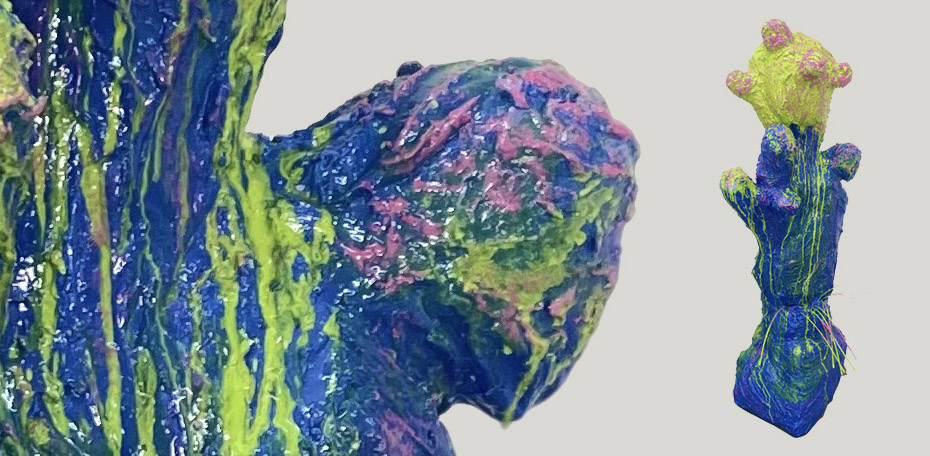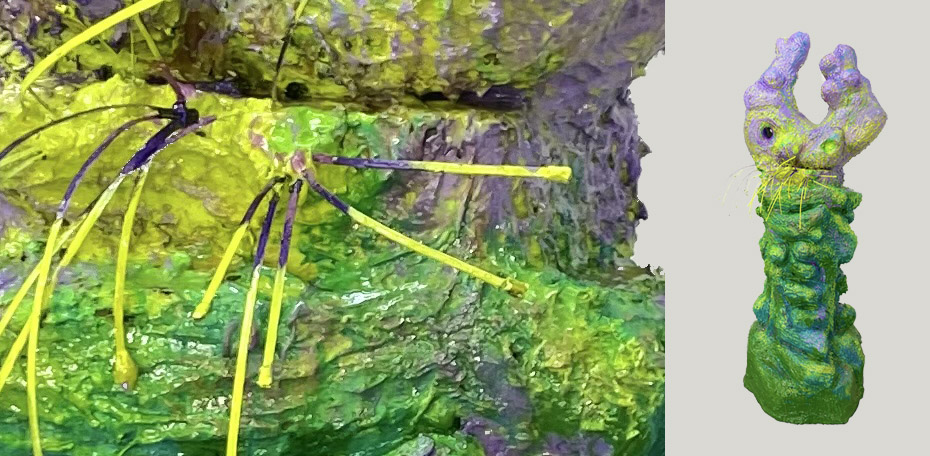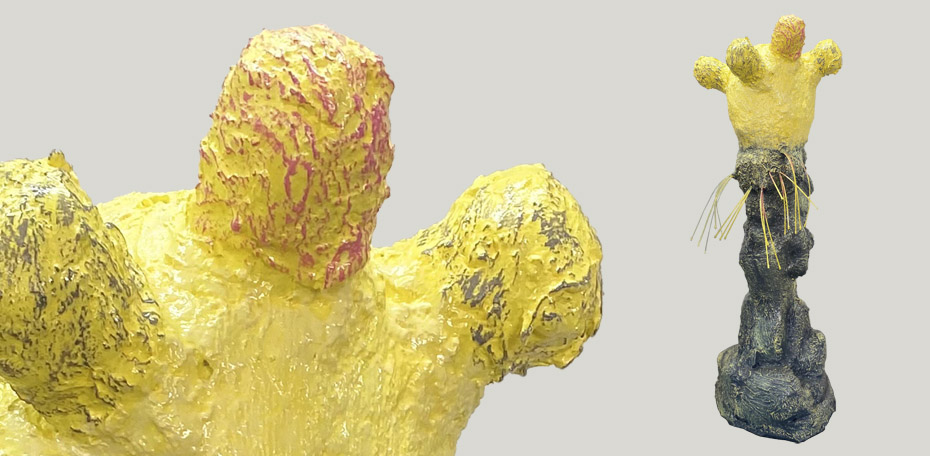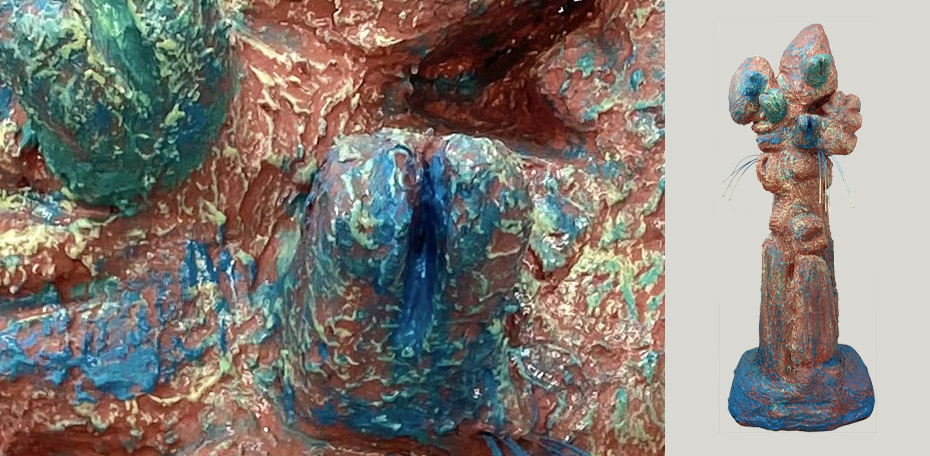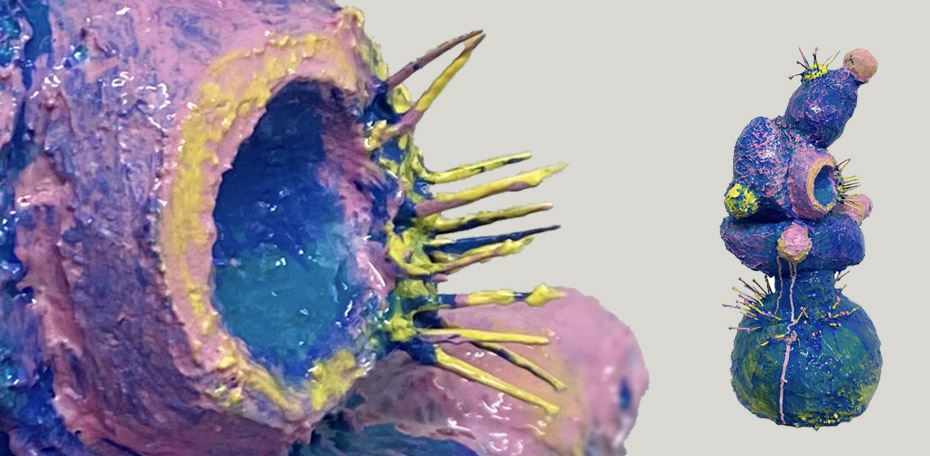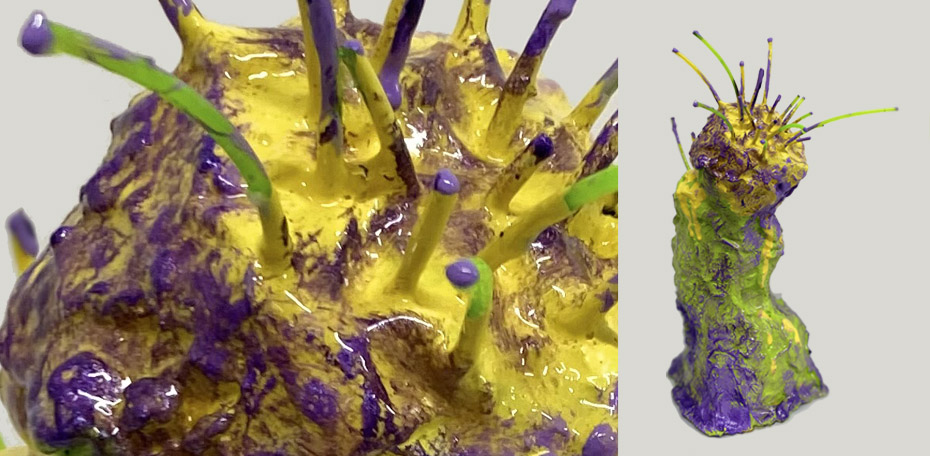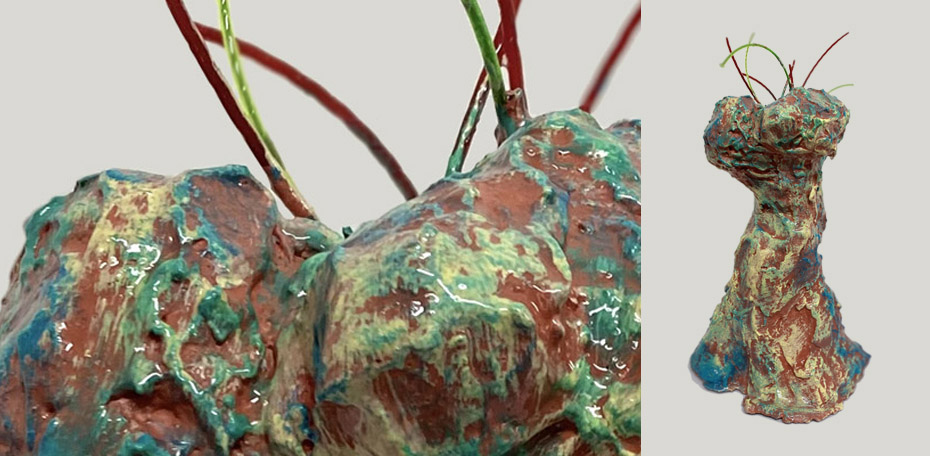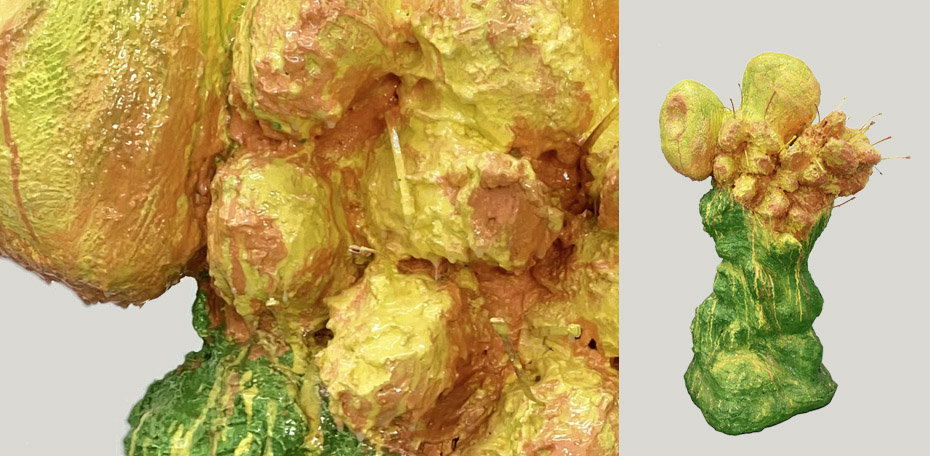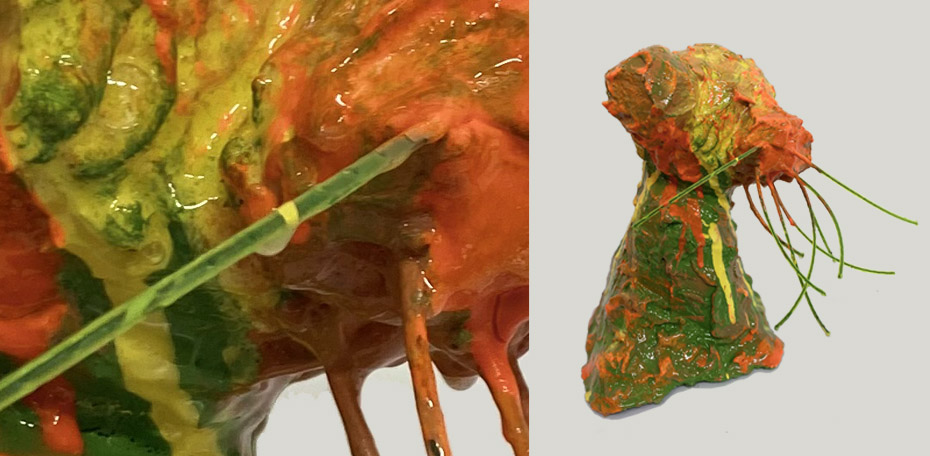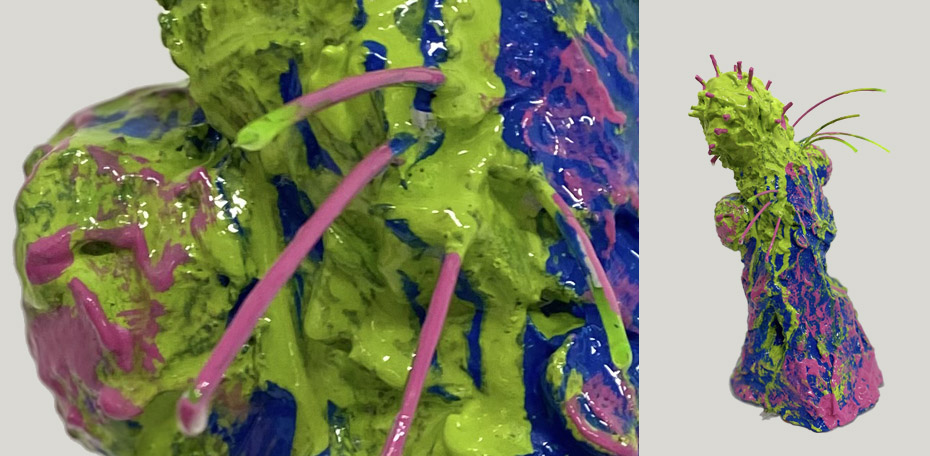Lisa Higgins was born in Auckland in 1972. She earned a Bachelor of Fine Arts in Sculpture and Jewellery from Unitec, Auckland in 1993, and in her final year of studies was commissioned to do a major work for the Titirangi roundabout. Bush Markers features three large (4.5M tall) fungus inspired sculptures. While originally intended as a temporary fixture, the locals embraced the work, and it remains in place today, nearly 20 years later. In 2017 it was awarded ‘International Roundabout of the Year’.
While completing her second commission (Rosehill College, Auckland) Lisa’s work with students led her to a career as an art teacher. After completing a post graduate teaching diploma, she signed on as Head of Photography at Long Bay College, Auckland. Lisa recalls how working under sculptor Michael Parekōwhai, led to her classes having a strong focus on sculpture, a subject not then taught in many high schools.
After two years at the school, an opportunity arose to do aid work in Nairobi, Kenya. A technical institute had been built under a New Zealand aid initiative and as part of this Lisa was hired to teach and set up a fine arts program. She worked with young street boys, teaching them jewellery making and painting. She also set up marketing connections where the boys could sell their work to earn a living. Lisa worked in this role for two years, with a break in between to return home to earn the funds she needed to support her aid work.
After returning from Nairobi, Lisa continued teaching art in Auckland. She spent 3 years at Westlake Boys High followed by 2 years as Head of the Art Department at Sancta Maria College. After becoming pregnant, Lisa left full time teaching to concentrate on family. She continued to be involved in art through a variety of small projects, however major art making was not feasible given her circumstances at the time.
In 2019, after 12 years of looking after others, Lisa felt a strong urge to do something for herself and decided to return to serious art making. She started by drawing fungi which had been the inspiration for her Bush Markers commission. Her fascination with fungi comes from the fact that they are beautiful things that come from death. “They remind us that, if we look for it, hope, fun and joy can come from tragedy.” The resulting body of work was called Coming Out of the Shadows as it reflected her return to the joy of art making after a prolonged period.
When Lisa showed us these works, we were excited by them and encouraged Lisa to take things further. The resulting exhibition, Frolic, is a commentary on Covid. She remembers the moment she first heard news of the pandemic. She was in the supermarket in Queenstown and people came pouring through the doors filling up trolleys in a frantic attempt to stock up in preparation for what might be coming. Many were crying and searching for reassurance from those around them. Recalling the fear, uncertainty and social shock that people felt, Lisa wanted this exhibition to be a collection of joyful, uplifting works that would make everyone smile again. “It is important we remember that, while we might be going through difficult times, we should remain hopeful that good things will follow.”
Lisa’s new works range in size from 200mm to over 2M tall. Evolving from Bush Markers, these mixed media works include a hand carved inner, strengthened with reinforcing steel over which silicon fibre sheets and cement mixed with resin are layered. Draping silicon cord or fine stainless-steel ribbon are added providing the suggestion of new life bursting forth. Heavy layers of acrylic paint and then marine resin are applied to both protect and provide an unmistakable lusciousness. While the often vivid colours Lisa uses feel somewhat fantastical, she reminds us that they are found in nature in flowers, leaves, and in a smaller scale, in fungi.


